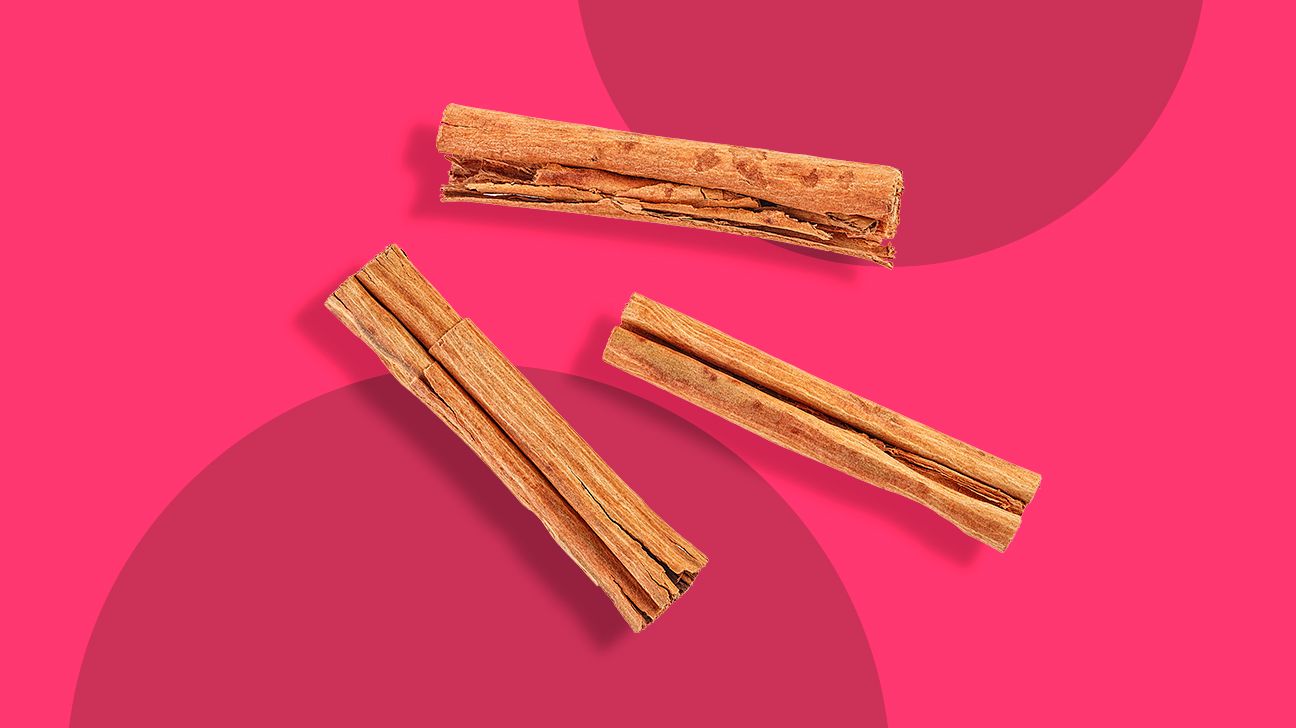We include products we think are useful for our readers. If you buy through links on this page, we may earn a small commission. Here’s our process.
Greatist only shows you brands and products that we stand behind.
Our team thoroughly researches and evaluates the recommendations we make on our site. To establish that the product manufacturers addressed safety and efficacy standards, we:- Evaluate ingredients and composition: Do they have the potential to cause harm?
- Fact-check all health claims: Do they align with the current body of scientific evidence?
- Assess the brand: Does it operate with integrity and adhere to industry best practices?
Raise your hand if you knew there was more than one species of cinnamon. Anyone?
Surprisingly, there are more than 300 species in the cinnamon family. But one of them, Ceylon cinnamon, stands out from the rest.
Ceylon cinnamon is one of the most sought after cinnamons worldwide, and it may actually have some legit health benefits.
Ceylon cinnamon — scientific names Cinnamomum zeylanicum or C. verum — comes from the Ceylon cinnamon tree, which is native to Sri Lanka.
Cinnamon, the spice, is made from the inner bark of the tree. Those delish cinnamon sticks we know and love are actually pieces of bark shaved off the tree into curls. Ground cinnamon is, of course, inner bark that’s been ground into a powder.
Many people consider Ceylon cinnamon to be of higher quality than other cinnamons. It has a more subtle, sweeter taste and is sometimes called “true cinnamon.” It comes with a heftier price tag to match, too.
Unlike other types of cinnamon, Ceylon has minuscule (basically nonexistent) amounts coumarin — a flavoring compound found in other types of cinnamon that can be dangerous in high levels. This makes Ceylon a safer choice if you plan to supplement with cinnamon.
Ceylon cinnamon may have some health benefits, but unfortunately the evidence is pretty limited. Most of it comes from test-tube and animal studies, so it should be taken with a huge grain of salt.
Better blood sugar control
Some limited research in animals and test tubes suggests that Ceylon cinnamon can improve your blood sugar control.
Additionally, there’s some evidence in humans to support the use of cinnamon as a diabetes treatment. Taking 1 to 6 grams daily may help manage blood sugar levels alongside other medications, but stronger evidence is definitely needed.
Improved cholesterol
According to animal studies, Ceylon cinnamon may have a beneficial effect on heart health by reducing LDL (bad) cholesterol and increasing HDL (good) cholesterol.
This is a win-win for decreasing heart disease risk, but unfortunately, hasn’t been replicated in humans.
Decreased blood pressure
A single animal study also showed that Ceylon cinnamon could reduce blood pressure, and some small short-term human studies found beneficial effects of cinnamon on blood pressure as well.
But again, more research is needed before we can truly understand how Ceylon cinnamon affects blood pressure.
Antioxidant content
Cinnamon may act as an antioxidant, stabilizing unstable free radicals which build up in the body over time, causing inflammation and increasing chronic disease risk.
Antioxidants can neutralize free radicals and help prevent or reverse the cellular damage they cause.
In one human study, Ceylon cinnamon increased antioxidant levels and improved other markers of free radical activity.
Antimicrobial activity
Test-tube studies show that cinnamon essential oil can kill some harmful bacteria, fungi, and even parasites.
The problem with test-tube studies is that they typically involve dousing samples with highly-concentrated doses of the compound being studied. Unfortunately, we can’t do that in the real world, so it’s hard to say if Ceylon cinnamon would have the same effect in a more realistic setting.
(Also, don’t drink cinnamon essential oil or put it on your skin. It will hurt.)
You may not be able to find Ceylon cinnamon at the grocery store, but it’s available online and at most specialty grocers.
You can buy Ceylon cinnamon sticks, ground Ceylon cinnamon, or capsules.
While capsules will probably be the easiest way to take a large amount of Ceylon cinnamon regularly, there’s honestly not enough research to support taking large doses or using it long term.
Whatever you choose, just promise us you won’t do the cinnamon challenge.
Ceylon cinnamon is pretty safe if you’re using it in cooking or adding it to tea, but supplements are a little riskier.
Luckily, Ceylon cinnamon supplements are safer than other cinnamon supplements because they contain only trace amounts of coumarins, which can interfere with blood thinning medications and cause liver damage in high doses.
However, little is known about the long-term effects of cinnamon supplementation, so you should still only use small doses and avoid long-term use.
Because of all of the unknowns, pregnant and breastfeeding women should also avoid supplementing with Ceylon cinnamon.
Finally, you shouldn’t consume cinnamon essential oil or apply it to your skin — especially if it’s undiluted. Cinnamon oil is no joke and can cause chemical burns.
If you have any concerns about taking Ceylon cinnamon, be sure to talk to your healthcare provider.
Ceylon cinnamon is a prized type of cinnamon with much lower coumarin content than other types. It may have some antioxidant potential, but unfortunately, there’s little research to support many of the claims made about its benefits.
Use it to add some “true cinnamon” flavor to your cooking, but supplementation may not be necessary.


